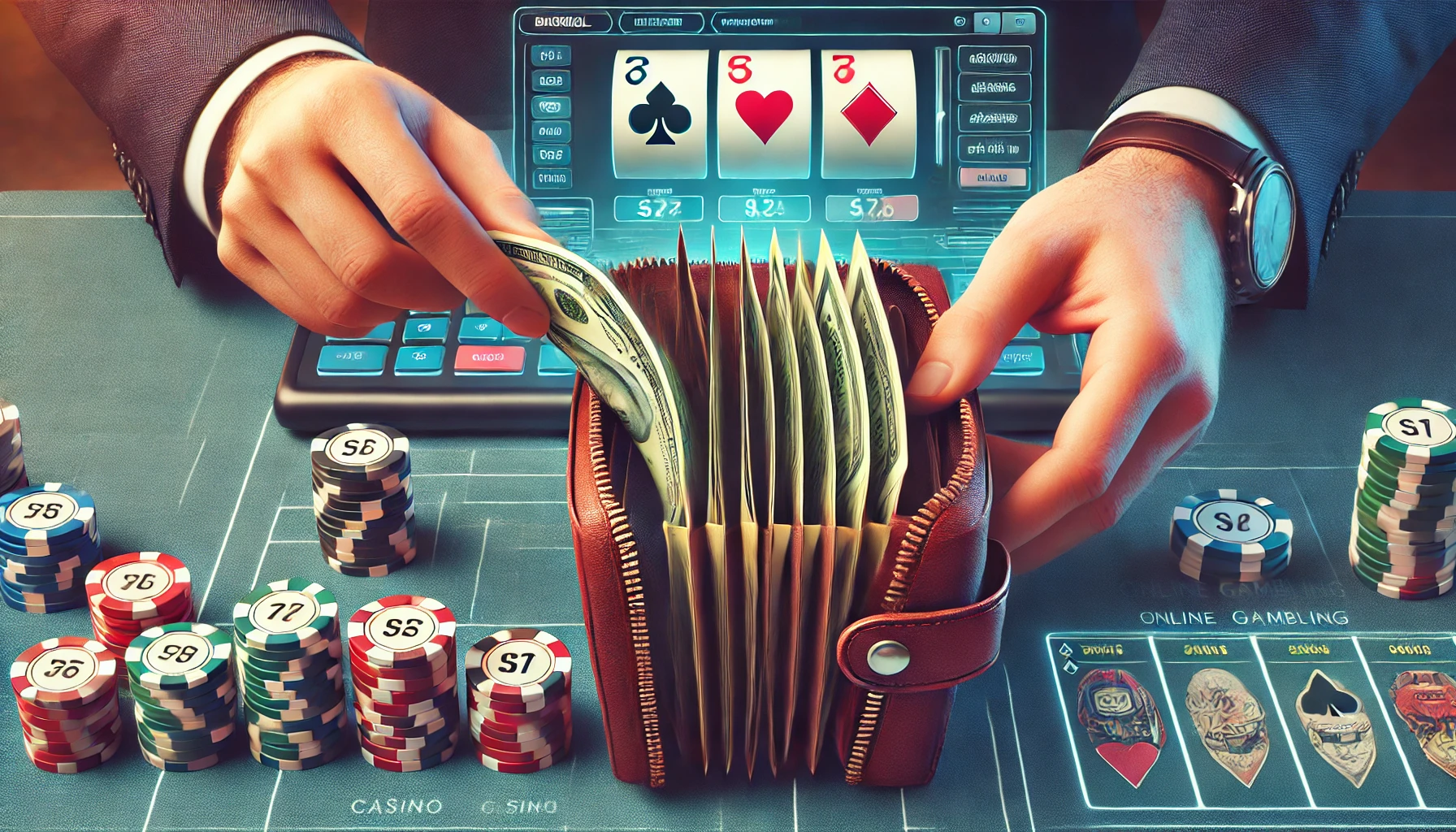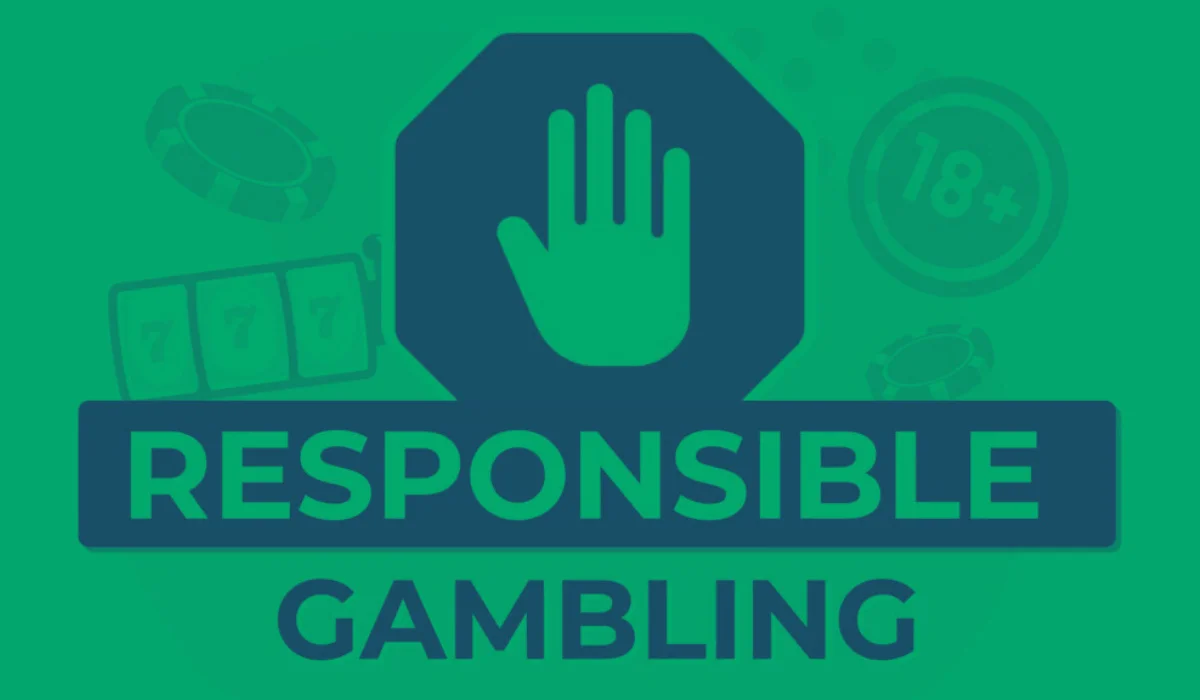
James oversees the content of our site and ensures the quality of every review and news article. With over 10 years of experience in the gambling industry, he has dedicated his career to exploring new trends and market analysis. James strives to make our articles accurate, understandable, and engaging for all readers. In his free time, James enjoys playing poker and has authored several books on poker strategy.
Bankroll management is all about controlling your money, knowing what your risk tolerance amount is, and making your money last. Anyone who does it correctly will be in a position to keep gaming enjoyable and avoid getting into that vicious circle of chasing losses or overspending. Here’s a guide on the basic strategies to bring the best value to your gambling budget.
What is Bankroll Management?

Bankroll management involves having a straightforward casino budget and abiding by it. We have all been there, tempted to make that big bet in hopes of getting that quick win. But the key is discipline. A bankroll is money that one has set aside for gambling and kept separately from money designated for daily expenses.
You can only bet a small percentage of this total in order to see you through ups and downs without going broke. This will help you to have better control of the natural ups and downs of luck in gambling and not overspend. It’s not just about how much you can win but how long you can stay in the game.
We also recommend paying attention to:
How does Bankroll Management Work?
Bankroll management works by placing boundaries on the amount we are able to wager, thereby balancing our risk and longevity. Before starting, ask yourself:” How much money should I bring to a casino?” The underlying principle is rather uncomplicated: at any one time, only a small percentage of your overall bankroll should be wagered. It prevents us from going broke when those losses inevitably happen. The actual percentage one bet on a wager will change based on what you are betting on, whether it be sports, casinos, or poker, but the core principle remains the same.
For example, in poker, it is recommended that you have at least 50 buy-ins for the level you are playing. With a $1,000, you’d be targeting much lower stakes, such as the 10c/20c games, ensuring that your bankroll can take swings. If it goes up, you can gradually move your bet size higher.
Why do You Need Bankroll Management?
Bankroll management is key, considering that gambling is a game of risk and variance is a harsh reality we are all called upon to deal with. Most games at casinos, most props, and even some sportsbooks have the advantage because of the nature of the house edge. Consequently, without a proper plan, winning would be particularly tough. Of course, even when you have a well-planned strategy and sharp knowledge, there will be days on which you’re going to lose.
Accepting this is part of responsible gambling. Without proper bankroll management, a few bad luck wagers could wipe you out quickly. A very good example here might be betting $100 per game with a $1,000 bankroll; while it may be fun and sound cool, losing ten in a row could find you broke. Hence, it is better to be betting small tranches – for example, $10-to see you through the ups and downs.
This allows you to remain in the game much longer and cushion yourself against variance; this approach buys one time. The pros swear by this technique, and it helps make gambling somewhat of a sustainable activity.
Casino Bankroll Management Differs from Game to Game
Remember that when constructing a bankroll, the various casino games are not all developed equally. Some extremely fast-paced games, such as slots, may have bet sizing similar in depth and careful consideration, while the pace of the action will be much slower in games involving poker or blackjack-type games. Consider the house edge along with other important factors related to game volatility and whether the game is skill or luck-based. All these elements inform your strategy.
Is There a Recommended Amount to Bet?
Although it is not set in stone, it is expected that a beginner will have smaller bets. A good range for betting would be 2%-5% of your entire bankroll. This allows flexibility in moving with the flow of the game, reducing risks while having control over your money. Adjust the size of your bets based on your comfort and the game you decide upon.
Bankroll Management at Online Casinos: The Basics

We’ll explain some basic principles to get you going, so you can play smart and make your money last longer.
Understand How Luck Plays a Role
Everything from the spin of the slot, the roll of the dice, or the hand of cards contains some element of randomness. When we’re managing our bankroll, it is important that we realize some things are beyond our control. In online games, this is guaranteed through random number generators, known as RNGs, which make every result independent of its predecessor.
Acknowledging luck will save us from the temptation to chase losses. We can lose when everything is right; that must be understood.
We have seen how prepared players behave during such a time, sticking to their game and not taking impulsive bets to get the money back. Luck might swing both ways, but the true responsible gambler knows how to sail these swings and never loses control.
We also recommend paying attention to:
Learn About the Game’s Variance
Knowing how often a game pays and how much is attached to the concept of variance. Some slots and jackpot games are highly variable, meaning that they can go through long periods of time when they do not pay out that much.
Most often, when these games do pay off, it is big. In order to make these particular games fruitful, we need a much bigger bankroll that can sustain us through those dry periods. Without one, a string of losses can pretty rapidly eat into our funds.
Meanwhile, low-variance games boast smaller wins, but these are more frequent. That means that your bankroll could be smaller, and you should, in theory, at least, be on a pretty even keel. However, the rewards won’t shoot as high as in high-variance games.
Understanding a game’s variance helps us decide on the right bet sizes. It allows us to know what kind of wins we can expect and manage our expectations.
Understanding House Edge and RTP
The return to player, as well as house advantage, is a core concept in online gambling. House edge refers to the average percentage a casino expects to hold from each bet. For instance, a house edge of 5% will mean that the casino retains, on average, $5 from every $100 bet. This advantage will ensure that the casino has profits over a long period.
Meanwhile, RTP shows what percentage of cash the game will return to players in the long run. For instance, if some online slot boasts 96% RTP, it will theoretically return $96 for every $100 wagered. Games with higher RTP come with more decent odds. However, this doesn’t guarantee wins in any way. In most cases, even with a very favourable RTP, individual sessions may change quite extensively.
Find an Appropriate Bonus
Bonuses are an excellent method to extend your playing time without investing as much of your own money. A good bonus enhances your bankroll and offers you more possibilities of winning. Of course, not every bonus is equal. Some of them contain ridiculous play-through requirements. In other words, you are going to be required to bet the actual bonus amount a lot of times before you can take out any of the winnings you earned. When we look for bonuses, the main focus is on finding offers that give us real value.
The best bonuses balance extra funds against reasonable terms. A bonus matching your deposit but with a 40-time wagering requirement on the total might not be as good as a smaller bonus with much more lenient requirements. Our tip is to read conditions and take in maximum bet limits, game restrictions, and withdrawal rules.
Bankroll Management Strategies
One of the many bankroll strategies setup for you is the key to effective bankroll management. Not only will these methods help you keep a rein on your funds, but it will also let you adapt and build up your betting over time. Herein lies a closer look at some of the most popular strategies.
Flat Betting
This is the most basic and closest bankroll management strategy. Here, we place the same amount for every bet, irrespective of the odds or type of bet. It alienates external factors like previous wins or losses and makes you consistent. The best way to preserve your bankroll; it will save you from any kind of chasing losses or too much joy after winning.
It is available in two ways: “win” and “risk.” In a “win” method, the bet size covers the sportsbook’s juice. In other words, you’d be betting 1.1 units to win 1 unit on a -110 bet. In the “risk” method, you actually bet 1 unit straight out and receive 0.91 units on a -110 bet.
Flat betting is used on moneyline bets, props, and spreads. For example, you place a bet on an underdog at +250. You are either wager 1 unit for a return of 2.5 units, or risk 0.4 units to win 1.
Percentage Betting
It involves wagering a fixed percentage of your bankroll on each bet. As your bankroll goes up or down, so does the size of your bets. That’s pretty cool, considering this will be the dynamic allowing your bets to grow with you in the good times and tighten up in those not-so-hot periods. You could say that’s just a well-balanced way of managing risk.
For example, if your bankroll is $500, and you decide to bet 1% of it on each bet, then your first bet will be $5. If you win and your bankroll increases to $530, then your next bet will increase to $5.30. In this way, it will automatically adjust how much you are betting with each bet, so you can protect your bankroll when you are losing and take advantage when you are winning.
You can also mix percentage betting with flat betting. More specifically, you can make a higher percentage of your higher bankroll, for instance, increase it to 1.5% or 2% of a higher bet, lowering the percentage of your bankroll begins to decline.
Confidence Model
The confidence model is subtler and depends on assessing the strength of your bets. In it, the stake depends on your confidence in one outcome or another. If you think a bet is most likely to win, then you should bet more.
If your confidence is lower, you stake less. This approach involves judgment, since you would adjust your bets according to how you see the potential of the game.
To implement the confidence model, many use a points system, either between 1 and 3 or even 1 and 5. Each point reflects your confidence in a bet. For example, if you were using a scale of 1 to 3, then a bet that you rated as a 1 might be $10, while a bet rated as a 3 would be $30.
This method requires close monitoring of your bets and confidence. Since you know what bets pay the most, you’ll be able to hone your intuition over time. If your high-confidence bets are consistently paying dividends, you may raise the stakes on similar bets. This model is more aggressive than flat or percentage betting, as it requires keen insights and constant assessment to succeed.
We also recommend paying attention to:
How to Choose the Right Online Casino Platform
How the Pros Do It: The Kelly Criterion
To professional gamblers, it is more than placing bets; it is about optimizing every single opportunity. One strategy used by most pros is called the Kelly Criterion-a formula designed to work out the ideal percentage of your bankroll you need to bet, based on the edge. This maximizes returns while reducing variance, in so doing minimizing the risk of going broke.
The formula looks like this:
- % = (P x b – P) / b
Where % is the percentage of your bankroll to bet, P is your probability of winning, and b is the potential profit on a win relative to the wager.
Let’s break it down with an example. Imagine we have $10,000 in our bankroll, and we’re offered a coin flip with a 2:1 payout. The probability of winning, P, is 0.5 (50%), and the payout b is 2.
The calculation would be:
- (0.5 x 2 – 0.5) / 2 = 0.25
The Kelly Criterion suggests betting 25% of the bankroll, or $2,500. This is because the odds and payout make it a statistically profitable bet. However, in most gambling situations, the edge will be much smaller, and the Kelly Criterion will recommend a far smaller percentage.
In sports betting, for example, we typically see professionals betting just 1% to 2% of their bankroll, occasionally up to 3% or 4% if they believe they’ve found an exceptional opportunity. The beauty of this formula is that it scales, advising you to bet more when the odds are in your favour and less when the edge is slimmer.
Importantly, for classic casino games in which the house has the edge, the Kelly Criterion will very often return a negative number—a not-so-subtle indication that you shouldn’t bet at all if you’re trying to make money.
How to Gamble Responsibly

While winning is certainly one of the primary goals, it’s important to realize that a portion of any gaming is losing. Whether professional or recreational, it is vital for every gambler to have risk management strategies and control measures in place. In this section, we will highlight some very useful practices that will enable one to gamble responsibly and not lose more than one can afford to.
Do Not Chase Losses
One of the biggest mistakes gamblers make is chasing losses. We are all there, placing a few losing bets and thinking, “I’ll just win it back on the next one.” This mindset can be dangerous. Small losses will happen, and you need to take them in your stride rather than try to recover immediately by increasing your bets.
Chasing losses often leads to impulsive and irrational decisions. And it results in bigger losses and depleted bankrolls. It’s essential to keep your cool, stick to your strategy, and remember that another opportunity will come. Patience is your best ally in this case.
Do Not Bet When Under the Influence
Gambling requires clear thinking and good judgment. Betting under the influence of alcohol or other drugs is a recipe for disaster. When your mind is clouded, your ability to make smart decisions is compromised. Many people find themselves placing risky bets they’d never consider when sober, leading to unnecessary losses.
Don’t Bet on Bad Lines
Getting the best value for your bets is essential. This means you shouldn’t just accept the first odds or lines you come across. We always advise shopping around and comparing odds from multiple sportsbooks. Even a small difference in lines can significantly impact your long-term results.
For example, if one sportsbook has a team at -7 and another offers them at -6.5, always take the better line. Over time, these small advantages add up, helping to preserve your bankroll. We recommend keeping accounts with a few different sportsbooks so you can quickly find the best available odds and place your bets accordingly.
Only Bet What You Can Afford to Lose
The golden rule of gambling is to never bet more than you can afford to lose. This should be money you can part with without it affecting your daily life. Your bankroll should be separate from your essential funds—like rent, bills, and groceries.
Professional gamblers treat their bankrolls like an investment, and they don’t stake everything they have in one go. For recreational gamblers, think of it as your entertainment budget. Knowing that you could potentially lose the entire amount will keep your gambling in perspective, and if you do end up losing, it won’t harm your financial situation.
We also recommend paying attention to:
How to Sign Up for an Online Casino
Pros and Cons of Having a Bankroll Management Strategy
Gambling money management is a crucial part of responsible gambling, offering many benefits but also a few downsides. Here’s a quick comparison:
| Pros | Cons |
|---|---|
| Better financial control during gambling | Can limit the potential for large wins |
| Increases playtime by spreading out bets. | The strategy might feel restrictive in certain games |
| Reduces risk of big losses | Adapting to the strategy takes time and practice |
| Encourages discipline and moderation | |
| Provides peace of mind and emotional stability |
The Psychological Edge: Mastering the Mental Game of Gambling
A sharp mental game is just as crucial as any bankroll strategy. We’ve seen how a strong mindset can help maintain focus, discipline, and patience at the tables or slots. When we’re mentally prepared, it’s easier to stay calm and make smart decisions, even during those inevitable losing streaks. The ability to resist the urge to chase losses comes from mastering our emotions and staying level-headed.
A key part of the mental game is understanding that gambling involves both wins and losses. Accepting this helps us avoid impulsive behaviour and keeps us from making reckless bets. Strategic thinking, emotional control, and remaining calm under pressure give us a psychological edge
FAQs
💸 What is bankroll management?
Bankroll management is a strategy for allocating and managing the amount of money set aside for gambling. It involves setting limits on how much you bet, ensuring you don’t risk more than you can afford to lose, and making strategic decisions to preserve your funds over time.
💸 Why is bankroll management important?
Proper gambling money management helps prevent significant financial losses and allows you to enjoy gambling without the stress of overspending. It also enables you to play for longer periods, handle losing streaks better, and avoid impulsive decisions that could lead to bigger losses.
💸 How do I determine my bankroll size?
To determine your bankroll size, start by assessing how much money you can afford to lose without impacting your daily life. This amount should be separate from your essential finances. Consider your game choice, betting style, and how often you plan to play when deciding on an appropriate bankroll.
💸 What’s the “Kelly Criterion” method?
The Kelly Criterion is a mathematical formula used to determine the optimal bet size based on the perceived edge. It helps maximize potential profits while minimizing the risk of going broke. It’s popular among professional bettors who want to bet strategically rather than just guessing.
💸 Should I use a percentage-based or unit-based bankroll strategy?
Both strategies have their benefits. A percentage-based strategy involves betting a fixed percentage of your bankroll, which adjusts as your bankroll changes. This method offers more flexibility and reduces risk during losing streaks. A unit-based strategy involves betting a fixed amount (or “unit”) on each wager, regardless of bankroll fluctuations. Choose based on your comfort level and the volatility of the games you play.
💸 How do I stick to my bankroll limits?
Discipline is key to sticking to your bankroll limits. Set a budget before you start playing, and never exceed it, even if you’re on a winning or losing streak. Consider using self-imposed limits, such as setting time or loss caps, and avoid chasing losses. Consistency in following your bankroll plan is essential.
💸 What’s the “Martingale” betting system?
The Martingale system is a strategy where you double your bet after every loss, with the idea that a win will recover all previous losses plus a profit equal to the original bet. While it can work in the short term, it carries high risks because a long losing streak can quickly deplete your bankroll.
💸 How frequently should I adjust my bet sizes?
Adjust your bet sizes whenever your bankroll changes significantly. For example, if you use a percentage-based system, your bet size will automatically adjust as your bankroll increases or decreases. Regularly assessing your bankroll size and performance can help you decide whether to increase or decrease your bets.
💸 Can I recover from a losing streak with bankroll management?
Yes, effective bankroll management helps you survive losing streaks by ensuring you’re not betting too much at any given time. While it doesn’t guarantee you’ll recover losses, it allows you to keep playing longer, giving you more opportunities to turn things around.
💸 Is bankroll management only for professional gamblers?
No, bankroll management is beneficial for all gamblers, whether professional or casual. It helps maintain control, reduces financial risk, and makes gambling more enjoyable by keeping spending in check. Even if you play for fun, having a clear bankroll plan ensures you don’t overspend.

James oversees the content of our site and ensures the quality of every review and news article. With over 10 years of experience in the gambling industry, he has dedicated his career to exploring new trends and market analysis. James strives to make our articles accurate, understandable, and engaging for all readers. In his free time, James enjoys playing poker and has authored several books on poker strategy.
We recommend



No comments yet. Be the first to comment!